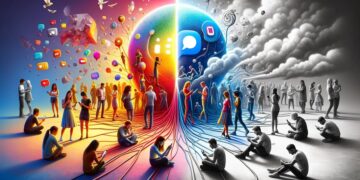
How financing works for small businesses
Financing is crucial for small businesses, impacting their growth and sustainability. Entrepreneurs can explore various funding options, including traditional loans, SBA loans, and crowdfunding. Understanding their specific needs and financial health enables owners to choose the right financing, paving the way for successful operations and innovation.

Difference between fixed income and variable income
The article explores the essential differences between fixed income and variable income investments, highlighting their unique characteristics, risks, and rewards. Fixed income offers stability and predictable returns appealing to conservative investors, while variable income presents higher growth potential for those willing to embrace market fluctuations. Understanding these distinctions is crucial for creating a balanced investment portfolio.

How to start investing in ETFs with little money
This guide highlights how beginners can confidently invest in ETFs, even with limited funds. It emphasizes the benefits of diversification, low costs, and flexibility while outlining essential steps to start investing, build a portfolio, and select the right brokerage platform for a successful investment journey.

Information and Isolation: The Impact of Digital Communication on Community Ties
This article explores the transformative effects of digital communication on community ties, highlighting both its benefits, like enhanced connectivity and access to information, and its drawbacks, such as isolation and superficial relationships. It advocates for responsible engagement strategies to balance virtual interactions with meaningful, real-life connections.

The Role of Information in the Formation of American Social Movements: A Historical Perspective
The article explores how information has historically driven American social movements, from revolutionary pamphlets to modern digital activism. It highlights key moments and platforms that shaped movements, emphasizing the evolving strategies of communication that mobilize communities and inspire action against injustices in society.

Cultural Narratives and the Politics of Information: Who Can Speak?
This article explores how media narratives shape cultural perceptions, highlighting the influence of media ownership, social media dynamics, and institutional biases. It examines the representation of marginalized voices, the role of digital activism, and the importance of critically engaging with the narratives that inform our societal understanding.

The Paradox of Information Overload: Navigating Truth in a Post-Truth Era
The article explores the challenges of information overload in a digital age, highlighting the pervasive influence of social media, algorithmic biases, and the importance of critical thinking. It emphasizes the need for transparency and community engagement to navigate misinformation, especially in personal finance, fostering informed decision-making and emotional well-being.

From Libraries to Algorithms: The Evolution of Information Access in the Digital Age
The transition from traditional libraries to digital platforms has revolutionized information access. While modern tools offer convenience and speed, they also present challenges like misinformation and algorithmic biases. Emphasizing critical thinking, ethical data usage, and algorithmic literacy is essential for navigating this complex digital landscape effectively.

Information as Resistance: How Communities Counter Dominant Narratives in the USA.
Communities in the USA are harnessing information as resistance against dominant narratives, using grassroots journalism, social media, and education to amplify marginalized voices. By sharing stories and data, they challenge stereotypes and foster solidarity, paving the way for transformative social change and a more inclusive dialogue.

The Intersection of Information and Education: Rethinking the Curriculum in a Digital World
The article explores the transformative effects of digital technology on education, highlighting innovative learning models, the importance of online resources, and data-driven personalization. It emphasizes the need for adaptive curricula that cultivate critical thinking, collaboration, and financial literacy, preparing students for a rapidly evolving information-rich world.